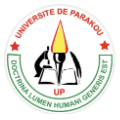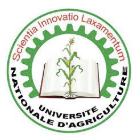Detailed introduction of the University of Abomey-Calavi in Benin:
Basic Profile
Established in 1970.
Nature of institution: Public university.
Location: Located in Abomey-Calavi, Atlantic Province, Benin, the town is a satellite city of Cotonou, about 18 kilometers from the center of Cotonou.
School size: The school has 6 campuses and consists of 19 teaching and research institutions.
Historical evolution
In 1962, the Institute of Higher Education of Benin (Institut d'Enseignement Supérieur du Bénin) was established in Cotonou, offering courses in limited fields such as law, economics and humanities.
In 1970, the institute was upgraded to a university and renamed the University of Dahomey (Université du Dahomey), and the course range was expanded to include majors such as medicine, engineering and agriculture.
In 1975, the school was renamed the National University of Benin (Université Nationale du Bénin).
In 2001, the school was renamed the University of Abomey-Calavi.
School Strength
Teaching Resources: The school has rich teaching resources, covering multiple disciplines such as science, engineering, literature, management, medicine, agriculture, and sports. It has 26 colleges and provides a wide range of undergraduate and graduate courses.
Faculty: As the largest and most prestigious university in Benin, the University of Abomey-Calavi has a high-quality faculty. The teachers have rich experience and outstanding achievements in teaching and scientific research, and actively participate in various research projects.
International Cooperation: It has established cooperative relations with many international institutions and universities, providing students and teachers with opportunities for communication and cooperation.
Educational philosophy: It is committed to providing high-quality education, cultivating students' professional skills and comprehensive qualities, so that they can play an important role in various fields. At the same time, the school also pays attention to scientific research innovation, encourages teachers and students to actively participate in scientific research activities, and contribute to the economic and social development of Benin.
Key laboratories and disciplines
Key disciplines: It has strong strengths in epidemiology, public health and preventive medicine, among which the epidemiology and public health and preventive medicine majors are ranked 401st in the world.
Laboratories: The school has multiple laboratories, providing good conditions for students and teachers' scientific research work, such as medical laboratories for disease research and drug development, and agricultural laboratories for crop cultivation and agricultural technology research.
Faculty
Faculty of Science and Technology: Including the School of Engineering, the Polytechnic Institute, the Higher Education Normal College, etc., to cultivate talents in engineering technology, scientific research, etc.
Faculty of Humanities and Social Sciences: Covering the College of Humanities and Arts, the Arabic and Israeli Culture College, etc., it focuses on cultivating students' literacy in humanities, social sciences, language and culture.
Faculty of Medicine: There are specialized medical schools and related research institutions, focusing on medical education and research, and cultivating medical professionals.
Faculty of Agriculture: It has an agricultural college, etc., which carries out agricultural science research and agricultural technology promotion to provide support for the agricultural development of Benin.
Ranking
National ranking: Ranked first in Benin.
World ranking: Ranked 1686th in the US NEWS World University Rankings.
Fees: Tuition fees vary depending on the course and major. Generally speaking, the tuition fees for undergraduate courses are relatively low, while the tuition fees for graduate courses are slightly higher. In addition, students also need to pay for other expenses such as accommodation and living expenses. According to relevant information, the school may provide certain scholarships and grants, but the specific situation needs to be further consulted with the school.
Campus environment
Teaching facilities: It has modern teaching buildings, laboratories, libraries and other teaching facilities, providing students with a good learning environment. The library has a rich collection of books, journals and electronic resources to meet the learning and research needs of students.
Living facilities: The school has living facilities such as canteens and dormitories to provide students with convenient living conditions. In addition, there are leisure facilities such as stadiums and swimming pools to enrich students' extracurricular life.
Campus atmosphere: The campus is shaded by trees, beautiful environment and strong cultural atmosphere. Students come from different regions and backgrounds, forming a diversified campus culture and promoting exchanges and cooperation among students.
-

University of Abomey-Calavi
-

University of Parakou
-

University of Kétou
-

Mesoamerican University
-

Istmo University
-

Mariano Galvez University of Guatemala
-

Regional University of Guatemala
-

Galileo University
-

Francisco Marroquín University
-

Rafael Landívar University
-

University of the Valley of Guatemala
-

University of San Carlos of Guatemala
-

Technological Institute of Tlaxcala Plateau
-

Golfo University
-

Technological University of South Sonora
-

Technological University of Huejotzingo
-

Tizimín Institute of Technology
-

Chilpancingo Institute of Technology
